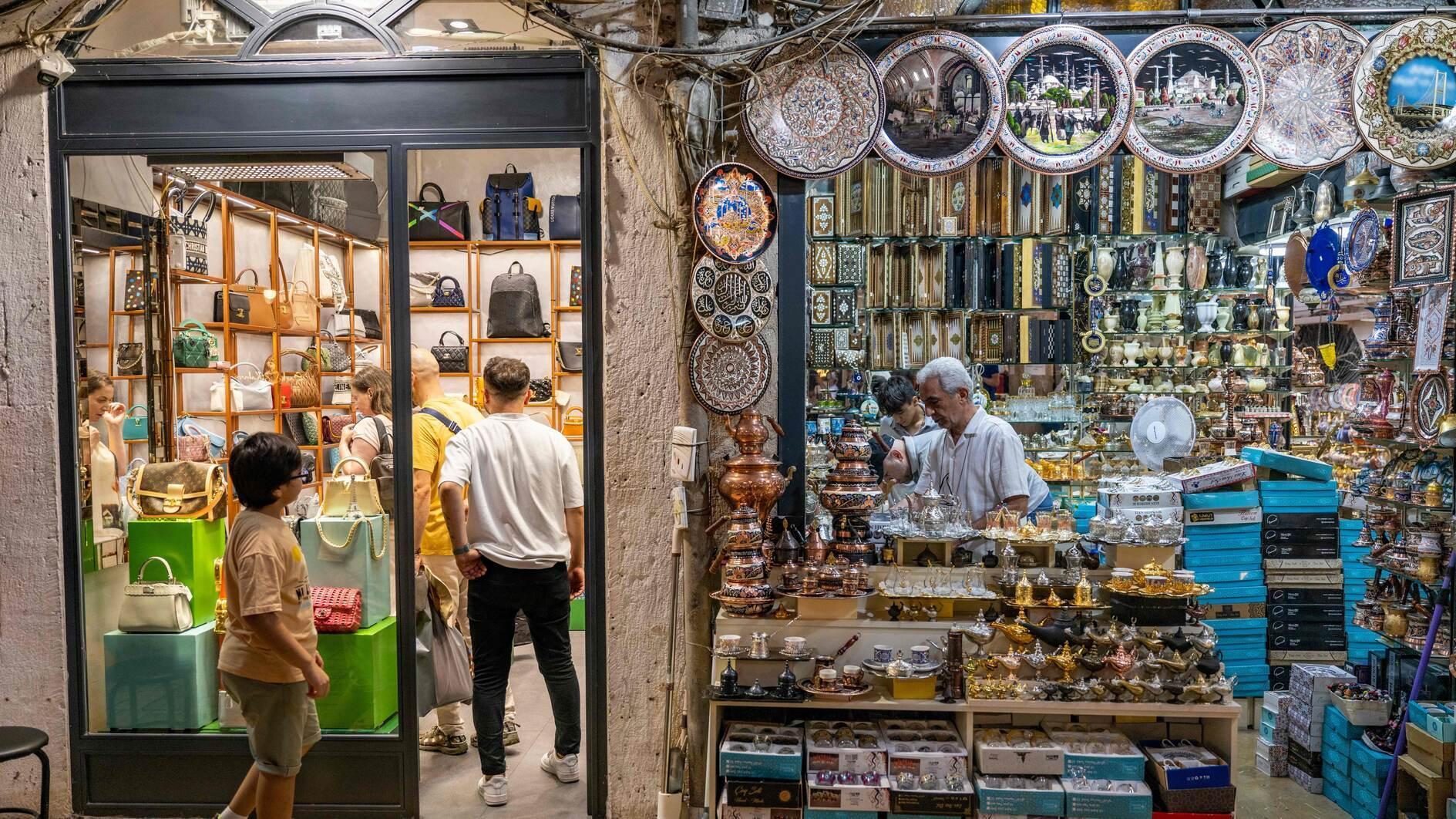
Cut-price branded perfumes and fake high-end handbags line the ornate alleys of Istanbul's Grand Bazaar, with traditional merchants saying the luxury counterfeits are stripping the marketplace of its character.
Where heritage Turkish crafts once flourished under the Ottoman-era marketplace's painted ceilings, the elegant carpet store run by Haşim Güreli is now surrounded by shops selling designer dupes.
"Back in the day, imitations were rare," said Güreli, who is vice-president of the bazaar's traders' association and a member of its board of directors.
"When some people started selling fake bags, they kept themselves hidden. They were afraid of the state," the carpet-seller added.
Many others among the bazaar's old-timers, who have fond memories of the small workshops that used to fill its labyrinthine alleyways, despair at seeing it overrun by fraudulent facsimiles.
Two aisles down, tea set-seller Gazi Uludağ lamented that the Grand Bazaar has "lost its unique character.”
"There is nothing but imported or counterfeit goods left and it's getting worse every year," he said.
In her handmade carpet store, Florence Heilbronn-Ogutgen bemoaned the fact that an artisan friend "who used to make real, beautiful bags in very good leather" had to shutter his shop, unable to make a living.
For the shopkeeper, who has been at the bazaar since 1998, artisans "can no longer survive" in the face of competition from the dubious dupes.
"These days, the finest boutiques are the counterfeit ones!" she said.
"They're the only ones left who can afford the $10,000 to $15,000 a month rent on the main alley. The bazaar has lost its soul."
One of the world's largest covered markets, the almost six-centuries-old Grand Bazaar attracts millions of tourists every year, many of them lured by the promise of cheap luxury.
Turkish law firms hired by the luxury behemoths are trying to clamp down on the counterfeiters, but that task is easier said than done.
"The problem is that you need to get search warrants for every address. There are thousands of shops in the Grand Bazaar so you need to get thousands of seizure orders," lawyer Sena Yasaroğlu told AFP.
He said that even with 20 people dealing with intellectual property cases at the law firm where he works, the challenge was formidable.
A spokesman for the Grand Bazaar's board of directors insisted that "the Istanbul police carry out frequent inspections" on the shops.
Standing in front of his miniscule shop of 2.5 square meters (three square yards), which he rents for $1,000 a month, Murat said he worries about the inspections "every day.”
In 2018, he and his brother saw the police swoop in on their business.
The bill was hefty: 800 fake bags seized and 40,000 euros ($43,500) in fines and legal fees.